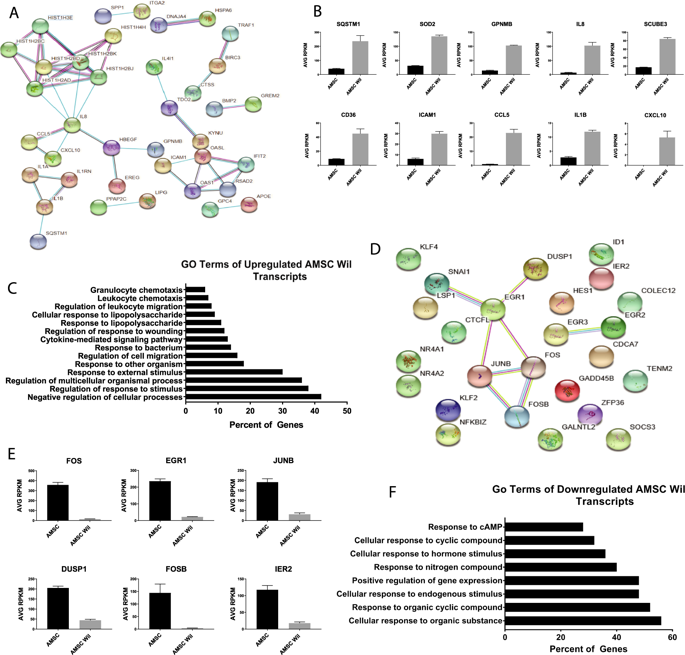Our official English website, www.x-mol.net, welcomes your
feedback! (Note: you will need to create a separate account there.)
Light chain amyloidosis induced inflammatory changes in cardiomyocytes and adipose-derived mesenchymal stromal cells.
Leukemia ( IF 12.8 ) Pub Date : 2019-12-03 , DOI: 10.1038/s41375-019-0640-4 Torri L Jordan 1, 2 , Khansaa Maar 2 , Keely R Redhage 2 , Pinaki Misra 2 , Luis M Blancas-Mejia 2 , Christopher J Dick 2 , Jonathan S Wall 3 , Angela Williams 3 , Allan B Dietz 4 , Andre J van Wijnen 2, 5, 6 , Yi Lin 4, 7 , Marina Ramirez-Alvarado 1, 2
Leukemia ( IF 12.8 ) Pub Date : 2019-12-03 , DOI: 10.1038/s41375-019-0640-4 Torri L Jordan 1, 2 , Khansaa Maar 2 , Keely R Redhage 2 , Pinaki Misra 2 , Luis M Blancas-Mejia 2 , Christopher J Dick 2 , Jonathan S Wall 3 , Angela Williams 3 , Allan B Dietz 4 , Andre J van Wijnen 2, 5, 6 , Yi Lin 4, 7 , Marina Ramirez-Alvarado 1, 2
Affiliation

|
Light chain (AL) amyloidosis is a progressive, degenerative disease characterized by the misfolding and amyloid deposition of immunoglobulin light chain (LC). The amyloid deposits lead to organ failure and death. Our laboratory is specifically interested in cardiac involvement of AL amyloidosis. We have previously shown that the fibrillar aggregates of LC proteins can be cytotoxic and arrest the growth of human RFP-AC16 cardiomyocytes in vitro. We showed that adipose-derived mesenchymal stromal cells (AMSC) can rescue the cardiomyocytes from the fibril-induced growth arrest through contact-dependent mechanisms. In this study, we examined the transcriptome changes of human cardiomyocytes and AMSC in the presence of AL amyloid fibrils. The presence of fibrils causes a 'priming' immune response in AMSC associated with interferon associated genes. Exposure to AL fibrils induced changes in the pathways associated with immune response and extracellular matrix components in cardiomyocytes. We also observed upregulation of innate immune-associated transcripts (chemokines, cytokines, and complement), suggesting that amyloid fibrils initiate an innate immune response on these cells, possibly due to phenotypic transformation. This study corroborates and expands our previous studies and identifies potential new immunologic mechanisms of action for fibril toxicity on human cardiomyocytes and AMSC rescue effect on cardiomyocytes.
中文翻译:

轻链淀粉样变性诱导心肌细胞和脂肪源性间充质基质细胞的炎症变化。
轻链 (AL) 淀粉样变性是一种进行性退行性疾病,其特征是免疫球蛋白轻链 (LC) 的错误折叠和淀粉样蛋白沉积。淀粉样蛋白沉积导致器官衰竭和死亡。我们的实验室对 AL 淀粉样变性的心脏受累特别感兴趣。我们之前已经证明,LC 蛋白的纤维状聚集体具有细胞毒性,可以在体外抑制人 RFP-AC16 心肌细胞的生长。我们发现,脂肪源性间充质基质细胞(AMSC)可以通过接触依赖性机制将心肌细胞从原纤维诱导的生长停滞中拯救出来。在这项研究中,我们检测了 AL 淀粉样原纤维存在下人类心肌细胞和 AMSC 的转录组变化。原纤维的存在会导致 AMSC 中与干扰素相关基因相关的“启动”免疫反应。暴露于 AL 原纤维会引起心肌细胞中与免疫反应和细胞外基质成分相关的途径发生变化。我们还观察到先天免疫相关转录物(趋化因子、细胞因子和补体)的上调,表明淀粉样原纤维在这些细胞上启动先天免疫反应,这可能是由于表型转化。这项研究证实并扩展了我们之前的研究,并确定了人类心肌细胞原纤维毒性和 AMSC 对心肌细胞救援作用的潜在新免疫作用机制。
更新日期:2019-12-04
中文翻译:

轻链淀粉样变性诱导心肌细胞和脂肪源性间充质基质细胞的炎症变化。
轻链 (AL) 淀粉样变性是一种进行性退行性疾病,其特征是免疫球蛋白轻链 (LC) 的错误折叠和淀粉样蛋白沉积。淀粉样蛋白沉积导致器官衰竭和死亡。我们的实验室对 AL 淀粉样变性的心脏受累特别感兴趣。我们之前已经证明,LC 蛋白的纤维状聚集体具有细胞毒性,可以在体外抑制人 RFP-AC16 心肌细胞的生长。我们发现,脂肪源性间充质基质细胞(AMSC)可以通过接触依赖性机制将心肌细胞从原纤维诱导的生长停滞中拯救出来。在这项研究中,我们检测了 AL 淀粉样原纤维存在下人类心肌细胞和 AMSC 的转录组变化。原纤维的存在会导致 AMSC 中与干扰素相关基因相关的“启动”免疫反应。暴露于 AL 原纤维会引起心肌细胞中与免疫反应和细胞外基质成分相关的途径发生变化。我们还观察到先天免疫相关转录物(趋化因子、细胞因子和补体)的上调,表明淀粉样原纤维在这些细胞上启动先天免疫反应,这可能是由于表型转化。这项研究证实并扩展了我们之前的研究,并确定了人类心肌细胞原纤维毒性和 AMSC 对心肌细胞救援作用的潜在新免疫作用机制。











































 京公网安备 11010802027423号
京公网安备 11010802027423号